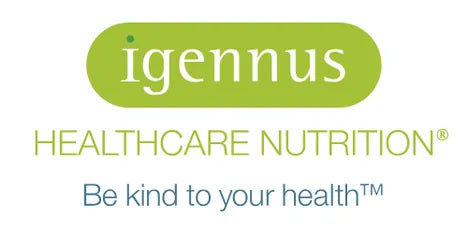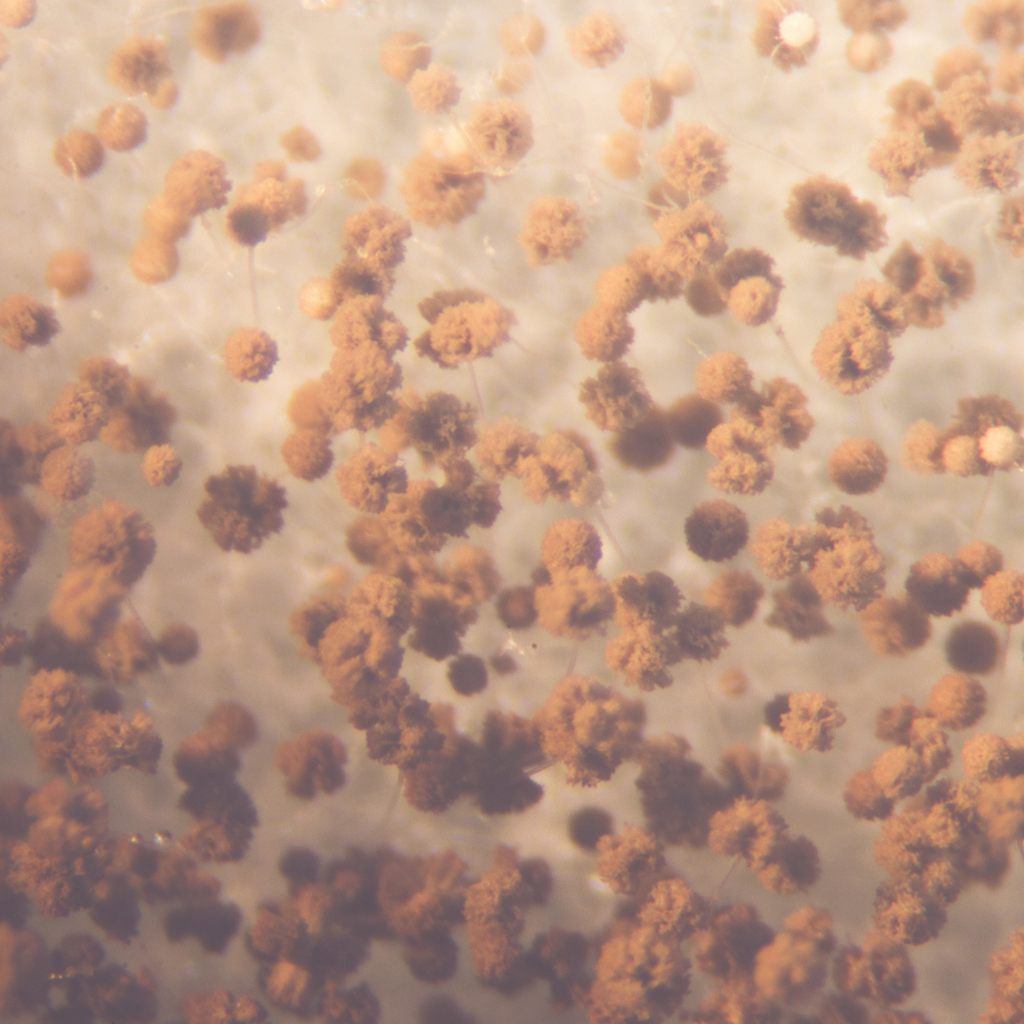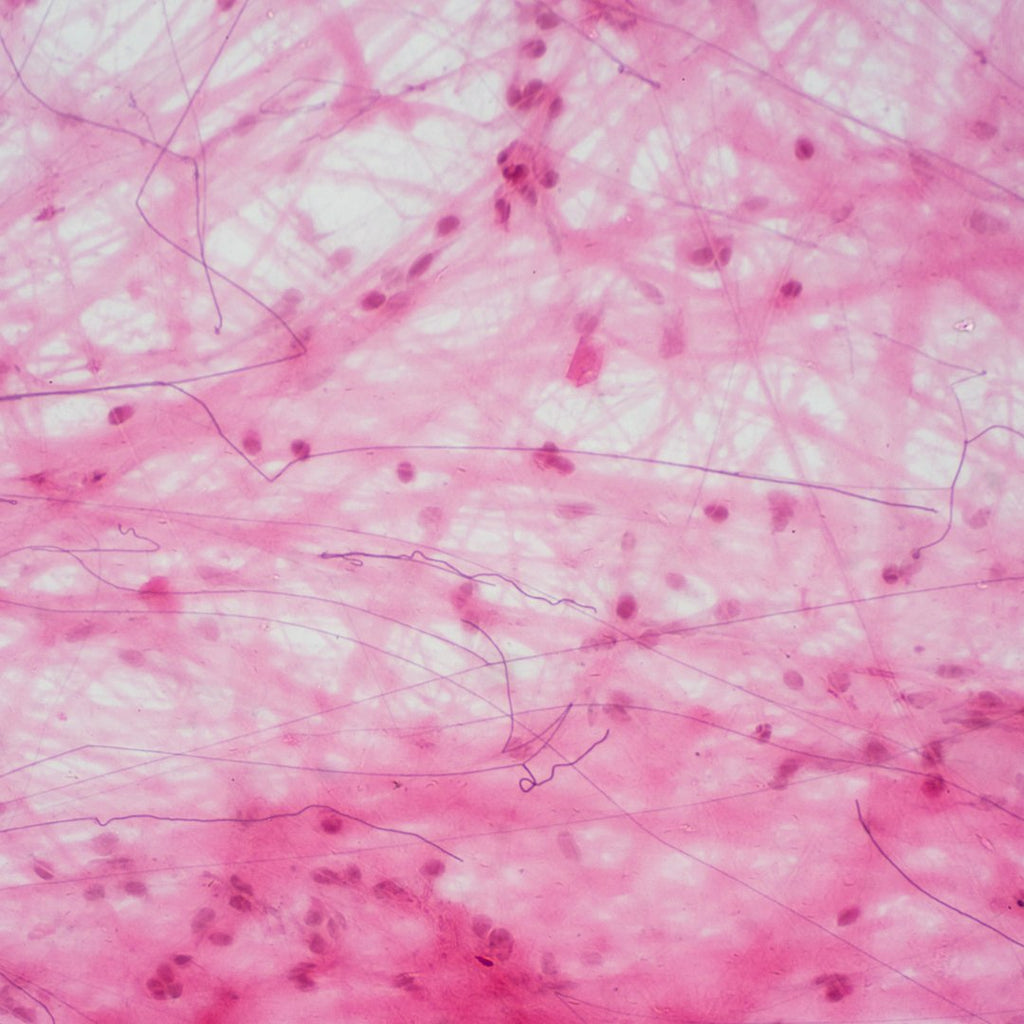Covid-19 has focused public attention on prioritising immune health, and many of the clients we support are especially vulnerable, needing solid immune defence should coronavirus strike. Perhaps you are also seeing clients who are either dealing with ongoing post-viral symptoms needing an anti-oxidant and energy boost, or have a different reason altogether for needing a quality vitamin C supplement, such as joint or periodontal disease.
With a dazzling array of options, how do you choose the right supplement for your client? In this article we discuss the three different vitamin C products Igennus Healthcare Nutrition offers, including two new products we have formulated to meet the growing demand for vitamin C and immune support supplements: Super Vitamin C Complex, and Liposomal Vitamin C & Zinc Immune Support Complex.
Vitamin C needs
Humans are one of the few animals that can’t make vitamin C, so intake from the diet or supplements is vital. Being water soluble, vitamin C isn’t stored for very long in the body, making regular intake essential. Five to nine portions of fresh and frozen vegetables and fruit are enough to supply most people’s baseline needs, but many clients don’t get enough, or have increased demands, such as those with inflammatory conditions, smokers or pregnant & lactating women. Infections cause vitamin C levels in lymphocytes and plasma to plummet. (Frei)
Benefits of vitamin C
All quality vitamin Cs contribute to immune, antioxidant and energy support and promote collagen production for healthy skin, joints, muscles, bones, teeth, gums and blood vessels, along with boosting iron absorption and supporting neurological and psychological function. Yet vitamin C levels in the blood are tightly regulated, so when providing clinically supportive doses one really needs a product with enhanced absorption and/or retention to reap the benefits. Each of our vitamin C products is optimised for clinical efficacy, and is backed by science, helping you choose the product to best suit your clients’ needs.
Vitamin C’s role in immune health
Vitamin C promotes resistance to infection by boosting the immunological activity of natural killer cells to fight viral infections, and preventing the destruction of T lymphocytes. It also supports interferon, cytokine, prostaglandin & antibody production and promotes cell-mediated immunity by activating phagocytes, cells which literally ‘devour’ pathogens, and assisting in their production of nitrous oxide to kill microorganisms. It even prevents viruses from producing ‘neuraminidase’ - their secret weapon for escaping from sticky situations (mucus) and host cells.
Super vitamin C Complex with Pureway-C® Vitamin C 1000mg
Super Vitamin C Complex is ideal for clients looking for a quality vitamin C who may be at cardiovascular risk, have a neurological condition or need wound-healing support
We are excited to launch this new addition to our range, a 1000mg vitamin C complex consisting of ascorbic acid, plant lipids and citrus bioflavonoids. Its solid science has impressed us for quite some time, as it has well documented evidence supporting cardiovascular & neurological health, offering protection against toxins and improving wound healing. As with our other vitamin C products, it also provides superior absorption and antioxidant activity compared with standard ascorbic acid.
PUREWAY-C was developed ~20 years ago by Pedro Perez, a chemical engineer on a mission to produce the world’s best absorbed and retained vitamin C. The plant lipids microencapsulate and protect vitamin C as it moves through the stomach, and facilitate its absorption. The bioflavonoids, excellent antioxidants, prevent free radicals from damaging the vitamin C, increase its absorption and play synergistic roles in cardiovascular and neurological health.
Pureway-C and the cardiovascular system
Studies suggest that vitamin C and citrus bioflavonoids support healthy cardiovascular function and circulation. (Kneckt 2002) In a trial looking at the impact of a single dose of 1000mg of different types of vitamin C on LDL cholesterol and CRP (a marker of inflammation), PUREWAY-C fared best - achieving the highest peak plasma level and decreasing oxidised LDL by 8.4% and CRP by 15.6% (83% and 64% better than the competition). (Pancorbo, Vazquez & Fletcher 2008) An analysis of the flavonoid intake of 34,489 postmenopausal women in the 16-year Iowa Women's Health Study found significant positive correlations between citrus flavonoid intake and cardiovascular function. (Mink 2007) Flavonoids’ benefits are linked to antioxidant protection of lipid molecules, promotion of optimal endothelial function, and enhancement of circulation by inhibiting platelet aggregation. (O-Byrne 2002)
Protection against toxins
Pesticides are unavoidable in our food nowadays. Bifenthrin, a pesticide that typically causes white blood cells to clump together, was applied to T lymphocytes in a study that showed PUREWAY-C reducing T-cell aggregation by 83% within 30 minutes of treatment compared to 33% with another common brand of vitamin C. (Weeks & Perez 2007)
Neurological benefits of Pureway-C
Both PUREWAY-C and citrus bioflavonoids have proven benefits for the neurological system. In a nerve regeneration study, nerve cells were stimulated to form neurites (projections that link to the neural network) in the presence of different types of vitamin C. Following PUREWAY-C treatment, 12% of cells extended neurites within one hour of treatment and 45% by hour nine, compared to 0% at one hour and 15% after nine hours, with another popular vitamin C supplement. (Weeks & Perez, 2007)Citrus bioflavonoids, which are able to cross the blood-brain barrier, support brain cells through prevention of oxidant damage. (Hwang 2008)
Improved wound healing
Fibroblasts were seeded onto fibronectin, an extracellular matrix substance that fibroblasts bind to during wound healing, in a lab simulation study. Adhesion was enhanced 4.7-fold with a 30 minute PUREWAY-C treatment while another common vitamin C increased fibroblast adhesion by only 1.5 fold. (Weeks & Perez, 2007)
PUREWAY-C may thus be an excellent choice for clients at cardiovascular risk, with neurological conditions or needing wound healing. This supplement is free from unpopular excipients and all common allergens, and, like all of our vitamin C products, is vegan-friendly.
Liposomal Vitamin C & Zinc Immune Support Complex, with Selenium & Copper
Liquid supplement ideal for providing immune support to the whole family
This new addition has been developed with family immune support in mind, offering excellently-absorbed liposomal vitamin C in a great-tasting liquid emulsion, with the additional immune-boosting punch of zinc, selenium and copper. It offers flexible dosing for children from 5 years of age (5ml per dose), and is also ideal for adults who prefer not to swallow tablets. The vitamin C is produced in Canada, using an all-natural biosynthesis process which creates nature-identical vitamin C.
Liposomes offer a novel delivery system to effectively get nutrients into the bloodstream without being destroyed by the digestive enzymes and acid. By combining vitamin C with non-GMO sunflower oil containing phosphatidylcholine, a double phospholipid layer forms a coating around the vitamin C. Because of their similarity to cell walls, liposomes are able to fuse directly with intestinal cells, leading to higher circulating concentrations of vitamin C, along with a longer half life. (Łukawski et al., 2019)
We added a trio of minerals to our bespoke formula, all in bioavailable forms with known roles as antioxidants and in supporting the immune system. Vitamin C and zinc have been shown to reduce the duration and severity of a cold, and early data suggests benefits from vitamin C and zinc and potentially selenium in the prevention and treatment of Covid-19. (Jayawardena)
Zinc bisglycinate
Nutritionally-related marginal zinc deficiency is prevalent in the ageing population, with a strong correlation between immune function and zinc levels. Zinc deficiency in the elderly is linked to immuno-senescence, the gradual deterioration of the immune system brought on by the natural ageing process. Causes of zinc deficiency in the elderly include inadequate food chewing, intestinal malabsorption and drug interactions. Vegetarians and vegans are also more prone to zinc deficiency, as their diet is low in bioavailable zinc most often found in animal products, as well as high in phytates from grains and legumes, which bind to zinc. Zinc in the bisglycinate form is, however, highly absorbable, even in the presence of phytates.
Zinc is effective as a preventative and therapeutic mineral for viral respiratory tract infections. For colds, zinc supplementation should be started as early as possible, ideally within the first 24 hours. (Rao) A study showed that when supplemented for ≥ 5 months as a syrup, zinc reduced the incidence of common colds, school absenteeism and the prescription of antibiotics in children. A randomised, double-blind, placebo-controlled trial was conducted on hospitalised children with pneumonia, who received either zinc bisglycinate or placebo, twice per day. Zinc supplementation reduced the duration of pneumonia, shortened the hospital stay by 3 days and reduced the number of days with fever by 4 days. (Rerksuppaphol &, Rerksuppaphol 2019)
Copper bisglycinate
Copper plays an essential role in immune function by stimulating the development and differentiation of white blood cells. In vitro studies have shown that copper also has direct antiviral effects by inhibiting the replication of the human influenza virus, while intracellular copper has been shown to regulate the influenza virus life cycle. As zinc and copper compete for absorption, taking regular supplemental zinc has the potential to upset the zinc:copper balance in the body, promoting inflammation and depleting glutathione. Copper should thus be added to zinc supplements in the ratio of 10-15:1. Intestinal absorption of copper is facilitated by amino acids and copper bisglycinate is not only well absorbed, but highly effective in increasing antioxidant activity.
WHY BISGLYCINATE CHELATES?
Glycine is one of the three major amino acids required for glutathione production, protecting the body from oxidative damage during the immune response, and supporting T-cell proliferation. Glycine is an anti-inflammatory, immunomodulatory and cytoprotective nutrient which improves immune function in humans. (Zhong)
selenium
Selenium is found in animal and plant products, but the soil in some parts of the world (including the UK) is deficient in this nutrient, putting those who don’t supplement at risk. It forms selenoproteins such as glutathione, which combats reactive oxygen species produced by viruses, to slow down viral replication and mutations. Selenium deficiency depresses many aspects of the immune system. We use selenomethionine, the natural form of selenium with a bioavailability of more than 90%, and the best form at raising glutathione levels.
The emulsion is naturally sweet and tangy, with no added sugar or sweeteners, and includes only natural flavours and colours. Unlike many liposomal vitamin Cs, it is free from soya and other common allergens, non-GMO and vegan friendly. Most of us at Igennus Healthcare Nutrition love the citrus-vanilla liquid straight from the spoon, but it can also be added to liquids, yoghurt or oatmeal. An adult dose of 15ml delivers 1000mg liposomal vitamin C, 15mg zinc bisglycinate, 70mcg selenium and 1mg copper. With a long shelf life, the generous 450ml bottle will last for 6 months in the fridge once opened.
With a friendly team of nutritionists happy to chat on the phone, over email or on LiveChat, don’t hesitate to contact us for further advice on meeting your clients’ vitamin C and immune health needs.
References:
- Mitmesser SH, Ye Q, Evans M, Combs M. Determination of plasma and leukocyte vitamin C concentrations in a randomized, double-blind, placebo-controlled trial with Ester-C® . SpringerPlus (2016) 5:1161
- Łukawski M, Dałek P, Borowik T, Foryś A, Langner M, Witkiewicz W, Przybyło M. New oral liposomal vitamin C formulation: properties and bioavailability.J Liposome Res. 2019 Jul 2:1-8. https://www.ncbi.nlm.nih.gov/pubmed/31264495
- Pancorbo D, Vazquez C and Fletcher M. Vitamin C-lipid metabolites: Uptake and retention and effect on plasma C-reactive protein and oxidized LDL levels in healthy volunteers. Med Sci Monit, 2008; 14(11): CR547-551. PMID: 18971870.
- Weeks, B & Perez, P. A novel vitamin C preparation enhances neurite formation and fibroblast adhesion and reduces xenobiotic-induced T-cell hyperactivation. Med Sci Monit, 2007; 13(3): BR51-58. PMID: 17325628
- Goutham Rao, Kate Rowland Zinc for the common cold—not if, but whenJ Fam Pract. 2011 Nov; 60(11): 669–671. https://www.ncbi.nlm.nih.gov/pmc/articles/PMC3273967/
- Rerksuppaphol L, Rerksuppaphol S. Efficacy of Adjunctive Zinc in Improving the Treatment Outcomes in Hospitalized Children with Pneumonia: A Randomized Controlled Trial.J Trop Pediatr. 2019 Dec 10. pii: fmz082. doi: 10.1093/tropej/fmz082.
- Zhong Z1, et al. L-Glycine: a novel antiinflammatory, immunomodulatory, and cytoprotective agent. Curr Opin Clin Nutr Metab Care. 2003 Mar;6(2):229-40.
- Ranil Jayawardena, Piumika Sooriyaarachchi, Michail Chourdakis, Chandima Jeewandara, Priyanga Ranasinghe Enhancing immunity in viral infections, with special emphasis on COVID-19: A review Diabetes Metab Syndr. 2020 July-August; 14(4): 367–382. https://www.ncbi.nlm.nih.gov/pmc/articles/PMC7161532/
- Mink P et al. Flavonoid intake and cardiovascular disease mortality: a prospective study in postmenopausal women, The American Journal of Clinical Nutrition, Volume 85, Issue 3, March 2007, Pages 895–909, https://doi.org/10.1093/ajcn/85.3.895
- Kneckt P et al. Flavonoid intake and risk of chronic diseases, The American Journal of Clinical Nutrition, Volume 76, Issue 3, September 2002, Pages 560–568, https://doi.org/10.1093/ajcn/76.3.560
- Hwang S & Yen G-C. Neuroprotective Effects of the Citrus Flavanones against H2O2-Induced Cytotoxicity in PC12 CellJ. Agric. Food Chem. 2008, 56, 3, 859-864
- Frei B, England L, Ames BN. Ascorbate is an outstanding antioxidant in human blood plasma. Proc Natl Acad Sci U S A. 1989 Aug;86(16):6377-81.
- Gruenwald J, Graubaum HJ, Busch R, Bentley C. Safety and tolerance of Ester-C® compared with regular ascorbic acid. Adv Ther. 2006 Jan-Feb;23(1):171-8.
- J A Vinson1, P Bose. Comparative bioavailability to humans of ascorbic acid alone or in a citrus extract. Am J Clin Nutr. 1988 Sep;48(3):601-4. doi: 10.1093/ajcn/48.3.601.
- DOI: 10.1093/ajcn/48.3.601
- Dawn J O'Byrne, Sridevi Devaraj, Scott M Grundy, Ishwarlal Jialal, Comparison of the antioxidant effects of Concord grape juice flavonoids α-tocopherol on markers of oxidative stress in healthy adults, The American Journal of Clinical Nutrition, Volume 76, Issue 6, December 2002, Pages 1367–1374, https://doi.org/10.1093/ajcn/76.6.1367






